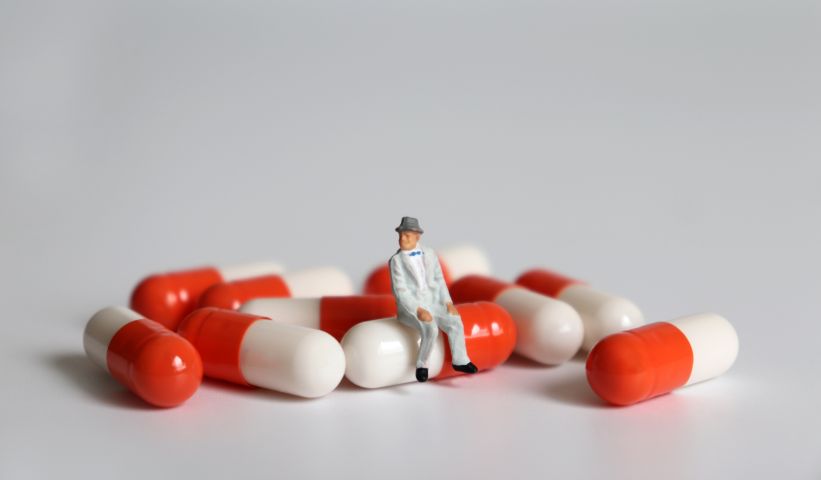The Importance of Taking Your Medication as Prescribed
The Importance of Taking Your Medication as Prescribed

A 2017 study on 150 hypertension patients in Puducherry revealed that only 49% of the patients adhered to the recommended medication intake procedure. It was found that those on a single drug had better adherence compared to those on multiple drugs.Those with good adherence also displayed better control of their blood pressure. This goes on to show that medication adherence helps in improving your existing condition and non-adherence is more common than it should be. So, read on to know why there is non-adherence and what you can do to prevent it. Also keep a comprehensive medical insurance plan handy, so that in case of an unexpected problem, you can get the best treatment possible without worrying about money.
Why Does Medication Non-adherence Exist?
There are several reasons as to why there can be non-adherence to the prescribed medication. The first reason is forgetfulness. Modern lives are filled with distractions and deadlines, and sometimes what’s out of sight, can go out of mind.
Secondly, there may be a lack of understanding directions. Not knowing when to take what can delay the consumption of the medicine, until clarity is sought.
Thirdly, some people avoid taking medicines due to the unpleasant side-effects. These side-effects may hamper critical functioning – more crucial if it affects their ability to work and if they live paycheque to paycheque.
Fourthly, those on a budget may want to skip certain doses if they’re feeling relatively fine, in order to make their medicines last longer. Or some may not have the money to buy a refill of the dosage required, thereby disrupting the prescribed routine.
While these reasons are understandable, non-adherence to the prescribed medication can have negative health outcomes and can even lead to deaths.
So, Here are Some Important Medication Rules to Follow:
• Don’t skip your dose
Skipping your dose to save money, time, or for any other reason, is not recommended. It can cause further complications. Inform your doctor about your potential reasons for skipping medication and maybe a solution can be found.
• Don’t overcompensate
Don’t increase your dosage because you missed a previous dose or took lesser than you were supposed to take. Deviating from the dosage can have hazardous consequences.
• Don’t stop taking medicines unless advised
Sometimes, medicines need to be taken for their prescribed course, to ensure that the problem is taken care of completely. Stopping your medicines midway because you’re feeling better may result in the condition rebounding. Stop taking medicines only if the doctor says it’s alright to stop.
• Know about medicine interactions
Medicationswork differently with different foods and even each other. Certain combinations can increase efficacy, while some can decrease the medicine’s efficacy. Sometimes, there can be negative reactions to the medicine due to alcohol consumption. So, consult your doctor about what you can and cannot eat while under medication.
While these guidelines must be followed, being able to do so is the key to maintaining your health.
Here are Some Tips to Help You Stick to Your Medication Routine:
1. Buy a pill box and arrange your pills according to the day you need to take them
2. You can also use a phone alarm to remind you when to take your medicine
3. Buy your refills in advance so there’s no break or disruption in dosage
4. Take your medicine at the same time everyday, and link it closely with a daily activity – like a certain mealtime, brushing your teeth, etc.
5. Carry extra medicine with you when you travel so that you’re prepared in case the destination does not have the same medicine
And finally, inform your doctor of any changes in your medication or symptoms, so that they know when to alter your medication. Doctors can only do so much, but you need to fulfil your end of the bargain and stick to the routine if you want to get better. Know why you’re taking the medicine that’s being prescribed, and what it does. Knowing more about what you’re putting inside your body will make you more accountable as well. And if finances are a problem, ensure you have a medical insurance plan. This is vital in ensuring your financial health, in case a serious health issue crops up or an existing condition worsens.
Disclaimer: The above information is for illustrative purpose only. For more details, please refer to policy wordings and prospectus before concluding the sales.
RELATED ARTICLES
How Soon Should You See a Doctor After an Accident?
Here’s Why You Should Add Ayurveda to Your Health Plan
5 Ways to Save the Planet and Live a Healthy Life Too










 Health Insurance
Health Insurance  Travel Insurance
Travel Insurance  Car Insurance
Car Insurance  Cyber Insurance
Cyber Insurance  Critical Illness Insurance
Critical Illness Insurance
 Pet Insurance
Pet Insurance
 Bike/Two Wheeler Insurance
Bike/Two Wheeler Insurance  Home Insurance
Home Insurance  Third Party Vehicle Ins.
Third Party Vehicle Ins.  Tractor Insurance
Tractor Insurance  Goods Carrying Vehicle Ins.
Goods Carrying Vehicle Ins.  Passenger Carrying Vehicle Ins.
Passenger Carrying Vehicle Ins.  Compulsory Personal Accident Insurance
Compulsory Personal Accident Insurance  Travel Insurance
Travel Insurance  Rural
Rural 











